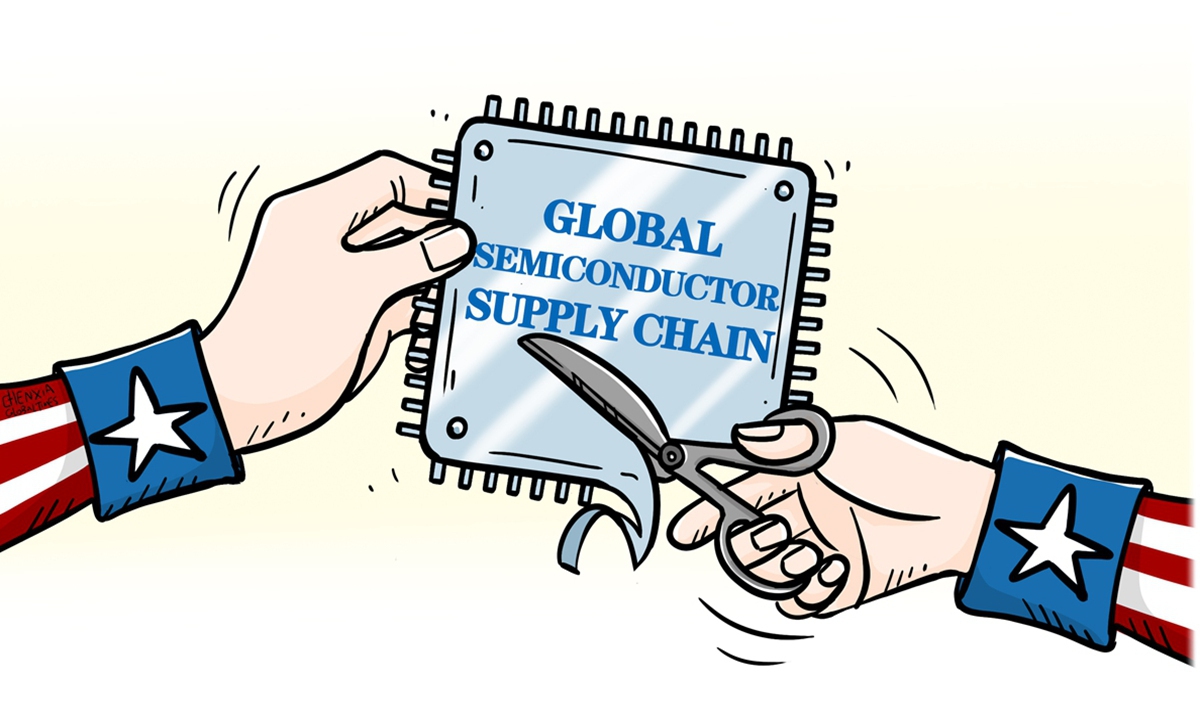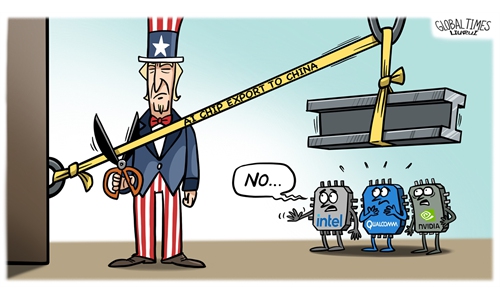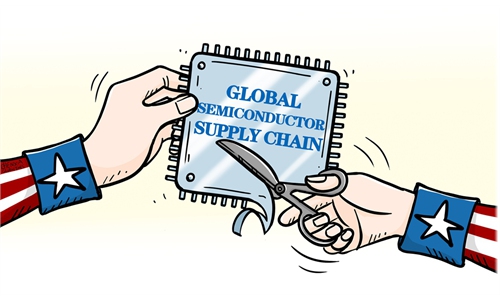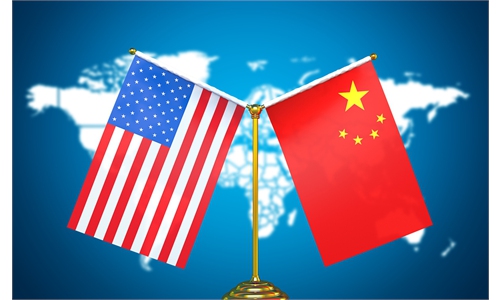
Illustration: Chen Xia/GT
Complying with the US government's export ban while doing as much business as possible with Chinese customers will be one of the most challenging issues that US chipmaker Nvidia will face for a considerable amount of time to come, and it may also invite fiercer competition for market share in China.Nvidia's CEO Jensen Huang on Wednesday told a news conference in Singapore that his company is working closely with the US government to ensure that new chips for the Chinese market are compliant with export curbs, as reported by Reuters.
Ever since the US government imposed various restrictions on semiconductor exports to China, redesigning chips specifically for the Chinese market has become a popular option for US chipmakers trying to maintain their presence in the world's biggest chip market.
Last month, Nvidia reportedly informed Chinese customers that it would launch a new China-focused artificial intelligence (AI) chip in the first quarter of next year. The plan was announced shortly after the US announced new curbs on chip exports in October.
This is not the first time Nvidia has announced its intention to reconfigure its products specifically for the Chinese market due to the US government's export restrictions. The company's reasons for doing so are obvious: Revenue from the Chinese market is too significant to simply be relinquished to competitors, and it accounts for about one-fifth of Nvidia's total income.
However, the reasonable business logic behind this decision is likely to be tested by US determination to disrupt free trade and continue the cut-throat chip war against China.
Just days before Huang's comments, US Commerce Secretary Gina Raimondo issued a warning to American chipmakers regarding the redesigning of chips to circumvent US export restrictions. During the Reagan National Defense Forum in California on Saturday, she made particularly pointed comments on Nvidia's redesign, according to media reports.
"If you redesign a chip around a particular cut line that enables them to do AI, I'm going to control it the very next day," she said.
Raimondo's warning could serve as a huge source of uncertainty for global chipmakers like Nvidia, as it represents the growing strategic conflicts behind US curbs on chip exports to China. US high-tech companies want to make money from China's massive market, while Washington aims to stifle China's development in high-end technology.
When American politicians emphasize the need for chipmakers to prioritize national security and accept losses, they simply overlook the concerns and anxieties of their own companies regarding the opportunities their government has created for Chinese competitors to utilize.
For instance, speaking at the New York Times DealBook conference in New York last month, Huang cautioned against the unintended consequences of Washington's export curbs, noting that there are as many as 50 companies in China working on technology that would compete with Nvidia's offerings, according to Bloomberg.
Apparently, feeling the pressure of competition from Chinese companies' accelerated independent innovation, the US chipmaker is not just concerned about the loss of short-term revenue, but also about being deprived of long-term opportunities in the Chinese market. That's something those arrogant American politicians don't bother to recognize.
Of course, how to protect their market share in China is an issue for American chipmakers, not Chinese ones.
As for China, there is no way for it to allow its semiconductor supply chain to be exposed to so much uncertainty in the long run. As a Chinese saying goes: "It is better to rely on oneself than to rely on others."
One consequence of the US export restrictions is that we will strengthen the pursuit of independent innovation and technological progress to break the technology containment, which is the only long-term solution to the US chip blockade of China.
In the meantime, China can also make full use of its massive market and take advantage of its manufacturing advantage to encourage competition and seek cooperation in the global semiconductor sector. Those who want to profit from the Chinese market or need manufactured products from China need to find a way to continue cooperation with China by ensuring supplies to China.



